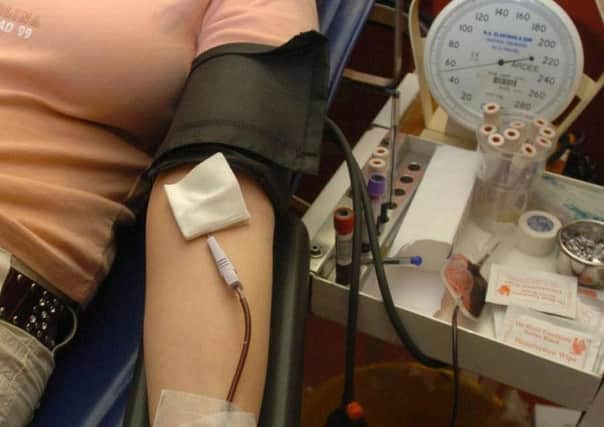Warning over low blood donation levels


National Blood week runs from 8 to 14 June, with the hashtag #MissingType
The number of new blood donors in the UK has dropped by more than 40 per cent in the last decade, leading to fears of blood shortages.
Advertisement
Hide AdAdvertisement
Hide AdHealth officials point to a number of different factors, including an increase in foreign travel and busier lifestyles. “People are working longer hours, commuting further, spending more time online and have less time of their own,” says Jonathan Latham of NHS Donor Services.
“Travel to more exotic places, tattoos and investigations such as endoscopy are [also] becoming more common and these lead to short-term deferrals from donation.”
The campaign e: “You won’t miss it. Do something amazing and save or improve up to three lives by giving blood.”
If you’ve given blood before you can book a session or find out your blood type and visit a local event in your area.
Who can give blood?
Advertisement
Hide AdAdvertisement
Hide AdThe majority of the British population is able to donate blood.
You will usually be allowed to give blood as long as you are:
Fit and healthy
Weigh over 7st 12lb (50kg)
Are aged between 17 and 66.
Male donors are allowed to donate about 470ml (just under a pint) every three months and women at four month intervals.
Who can’t give blood:
Those with existing medical conditions.
Anyone who has travelled outside of the UK within the past six months.
Advertisement
Hide AdAdvertisement
Hide AdAnyone who has had a tattoo, piercing or acupuncture in the past four months.
Men who have had sex with men (with or without a condom) in the last year.
Anyone who has had sex with a sex worker in the last year.
Anyone who has sex with someone who has been sexually active in parts of the world where Aids/HIV is very common in the last year.
Anyone on antibiotics.
Anyone who has been to the dentist in the last week.